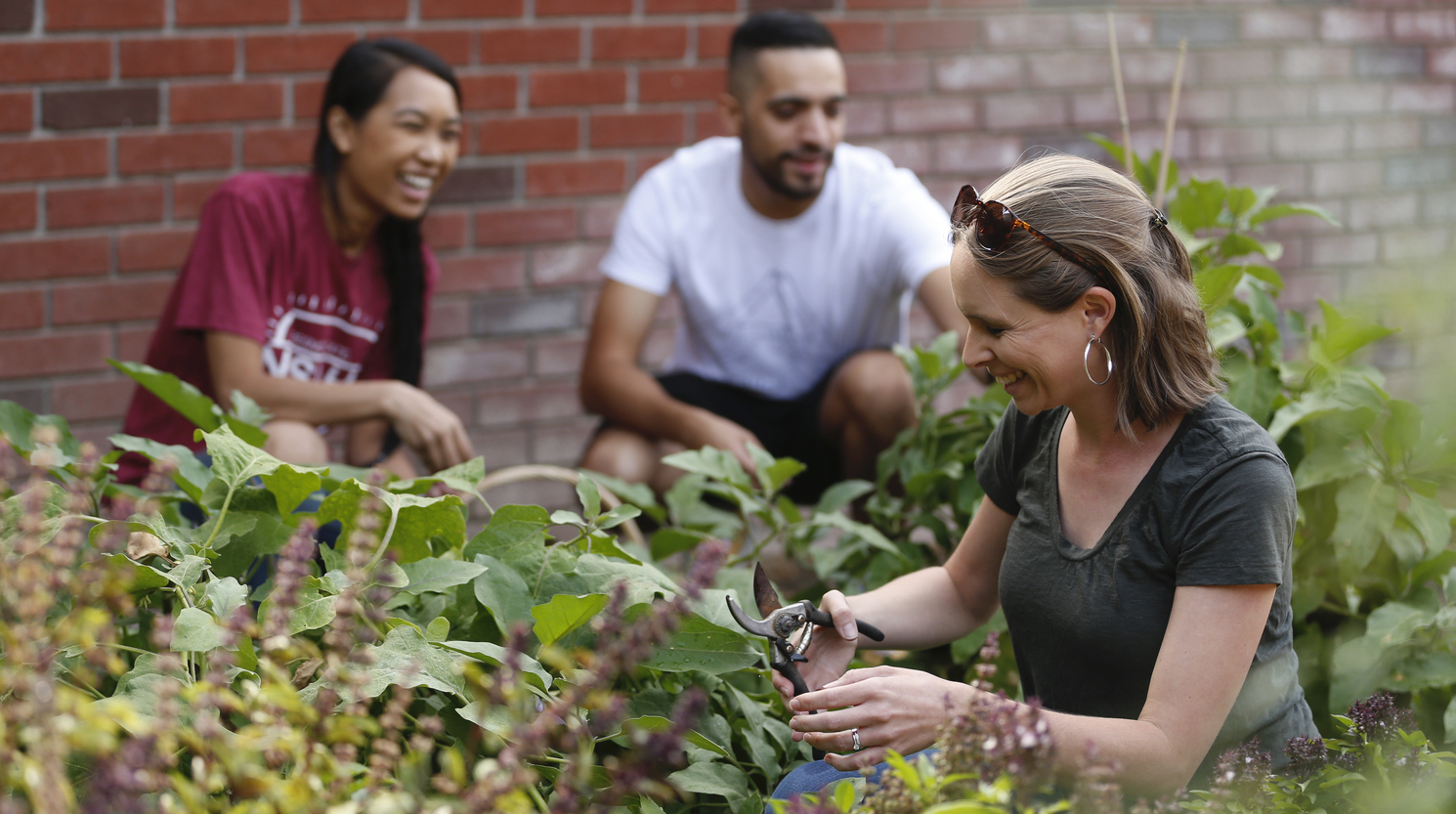SECREd Gardens
About Us

The history of urban and community gardening is long, dating to the Aztecs. American urban gardening played a significant role during the Depression in beautifying cities and allowing at risk-youth access to safe, nutritious, and educational environments, ultimately sparking the school garden movement prevalent in the United States today (Walter, 2013). Gardens and outdoor classrooms are increasingly supporting science curriculum development in early education. These outdoor experiences are impacting science, literacy, and math standards as well as addressing environmental, nutritional, and social-emotional aspects of early learning and development. Opportunities to explore gardens and outdoor classrooms contribute to teacher commitment in the sciences as well as improving student interest and curiosity in the natural world (Carrie, Tugurian & Thomson, 2013).
Teacher pre-service experiences in the sciences can have a significant impact on science attitudes, instructional methods, and commitment to science instruction (Eick, 2012). Garden classrooms and outdoor learning environments contribute to project-based learning opportunities, community involvement, environmental stewardship, personal and social development, an increase in play and exploration, and improvements in academic performance and dietary outcomes (Berzowitz, Yoder & Scholler, 2015; Gopal & Pastor, 2013; Lakin, 2006; Mayes, 2010; Nimmo & Hallet, 2008). According to Life Labs, an outdoor education and demonstration garden program in Santa Cruz, California (2017), teachers and students who have participated in garden and outdoor classroom projects have demonstrated a 79% increase in healthy eating choices; an 88% increase in motivation to be in the outdoors; an 85% increase in cooperation, enthusiasm for learning, and creativity; and 95% increase in the desire to engage in hands-on learning experiences.
The school garden and outdoor classroom movement has been shown to benefit all students of all ages and abilities, while contributing to greater social and academic standards, particularly those required in the physical and life science as recommended by the National Science Education Standards and Next Generation Science Standards (Rye et al., 2012).
The opportunity to engage Fresno State students, pre-service teachers, and community children in garden-based and outdoor learning environments will place CSU Fresno at the forefront of a growing movement and provide a forum for an array of specialized projects.